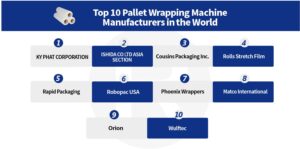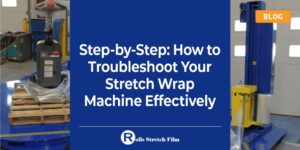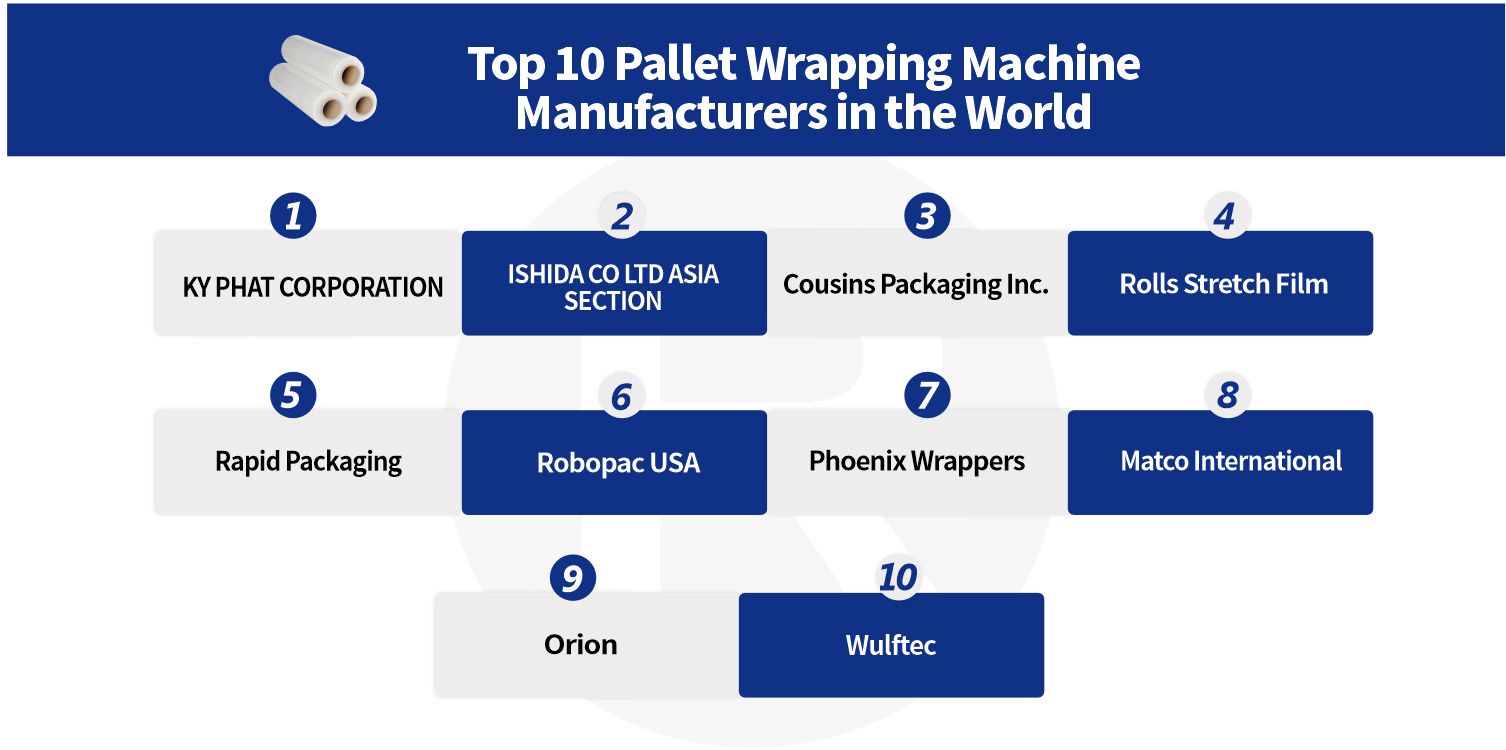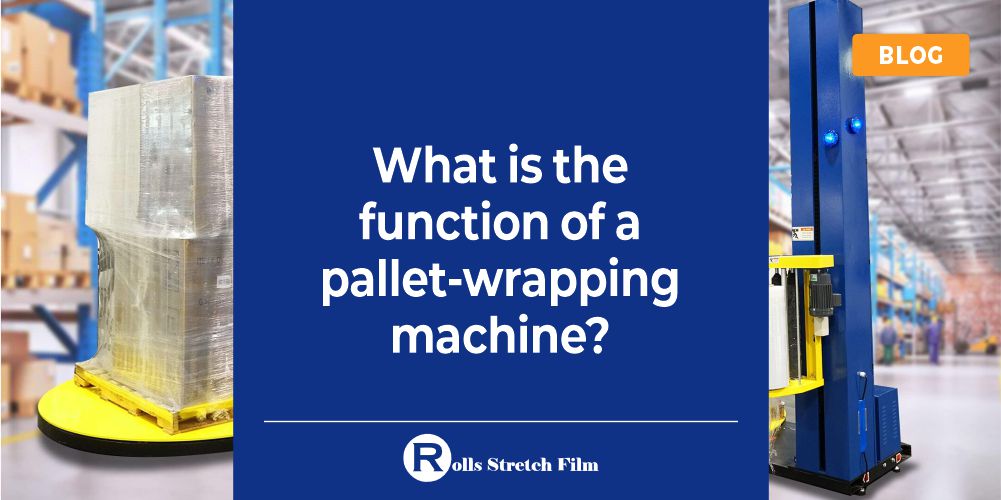The size of your stretch film roll can impact the efficiency and cost-effectiveness of your packaging processes, as well as the quality of your finished products. With so many options available on the market, it can be challenging to decide which size of stretch film roll is best suited to your business needs.
When selecting the perfect stretch film roll size, consider the weight and size of the products you’re packaging, the equipment you’re using, and the environment in which you’re working. Additionally, the type of machinery you use can dictate the size of the stretch film roll you need.
In this guide, we will explore the different factors to consider when choosing a stretch film roll size for various industries and applications.
1. Introduction
Explanation of the importance of choosing the right stretch film roll size for pallet wrapping
The right size of stretch film roll can help optimize the pallet wrapping process and minimize waste, ultimately saving time and money. A larger pallet will require a wider and longer stretch film roll to ensure adequate coverage, stability, and protection. Similarly, a heavier load will require a thicker stretch film to withstand the weight and prevent damage or shifting during transport or storage.
It’s essential to select a roll size that is compatible with your machine to avoid potential downtime or equipment damage. Selecting the right stretch film roll size can also minimize waste and reduce costs.

Overview of key factors to consider
When choosing the right stretch film roll size, there are several key factors to consider to ensure that the packaging process is efficient and effective including product size and weight, pallet size and weight, wrapping machine specifications, environmental factors, and waste reduction.
2. Pallet Wrapping and Stretch Film Roll Size
Explanation of how stretch film is used in pallet wrapping
Stretch film is commonly used in pallet wrapping as a packaging material to secure and protect the contents of a pallet during transportation or storage. Pallet wrapping involves wrapping a stretch film around a pallet of goods to hold them in place and prevent them from shifting, falling, or getting damaged.
Importance of choosing the right roll size
Choosing the right roll size for stretch film in pallet wrapping is essential to ensure that the packaging process is efficient, effective, and cost-efficient. Some of the key reasons why selecting the appropriate roll size is important to include adequate protection, stability and security, compatibility with equipment, waste reduction, and cost-effectiveness.

Key considerations such as load weight, load size, and pallet dimensions
The weight of the load being packaged will impact the appropriate roll size required for stretch film. Heavier loads will require thicker and wider stretch films to provide adequate protection and stability.
The size of the load being packaged will also impact the appropriate roll size of stretch film. Larger loads will require wider and longer rolls to ensure sufficient coverage and stability.
The dimensions of the pallet being wrapped will impact the appropriate roll size required for stretch film. Wider and longer pallets will require wider and longer rolls of stretch film to properly cover and secure the load.
3. Common Stretch Film Roll Sizes
Overview of standard stretch film roll sizes
Here is an overview of some of the standard stretch film roll sizes available:
- Hand-held rolls: These rolls are typically used for manual pallet wrapping and are available in widths of 12-18 inches and lengths of 500-1500 feet.
- Machine rolls: Machine stretch film rolls are designed to be used with automated pallet wrapping equipment and are available in widths of 20-60 inches and lengths of 5,000-9,000 feet.
- Mini rolls: Mini stretch film rolls are smaller and lighter than hand-held rolls and are often used for bundling smaller items. They are available in widths of 3-5 inches and lengths of 100-1000 feet.
- Jumbo rolls: Jumbo stretch film rolls are used in high-volume packaging operations and can be up to 80 inches wide and 10,000 feet long.
Advantages and disadvantages of each size option

Here is an overview of some of the pros and cons of each size option:
A.Hand-held rolls
| Advantages | Disadvantages |
|---|---|
| Easy to handle and maneuver during manual wrapping | Requires manual labor and can be time-consuming for larger pallets and loads |
| Ideal for smaller pallets and loads | Limited in width and length compared to machine rolls |
| Lower cost compared to machine rolls |
B.Machine rolls
| Advantages | Disadvantages |
|---|---|
| Designed for use with automated wrapping equipment, resulting in a faster and more efficient packaging process | Higher cost compared to hand-held rolls |
| Available in larger sizes, making them suitable for larger pallets and loads | Require specialized equipment for use |
| Can be used with pre-stretch equipment, resulting in material savings | Not suitable for manual wrapping |
C.Mini rolls
| Advantages | Disadvantages |
|---|---|
| Ideal for bundling smaller items | Limited in size and therefore not suitable for larger loads |
| Can be used for manual or automated wrapping | May not provide sufficient protection and stability for larger loads |
| Lower cost compared to larger rolls |
D.Jumbo rolls
| Advantages | Disadvantages |
|---|---|
| Suitable for high-volume packaging operations | Require specialized equipment for use |
| Lower cost compared to smaller rolls on a per-foot basis | Not suitable for manual wrapping |
| Available in larger sizes, making them suitable for larger pallets and loads | This may result in excess waste and material usage for smaller loads |
4. Choosing the Right Stretch Film Roll Size
Best practices for selecting the right roll size based on load weight, size, and pallet dimensions
Some best practices for selecting the right roll size based on load weight, size, and pallet dimensions include determining the weight and size of the load, considering the dimensions of the pallet, choosing the appropriate film thickness, determining the type of equipment being used, and testing the film and wrapping process.
Tips for maximizing stretch film usage and reducing waste
- Choosing the appropriate film thickness for the load can help reduce waste and save on material costs.
- Pre-stretch equipment can help reduce the amount of film used by stretching it before wrapping the load.
- Adjusting the tension settings on the wrapping equipment can also help reduce the amount of film used.
- Optimizing the wrapping pattern can help reduce film usage and ensure optimal protection and stability for the load. A consistent and uniform wrapping pattern can also help reduce the risk of damage during transport.
- Regularly monitoring the performance of the wrapping equipment and identifying any issues can help reduce waste and improve efficiency. Regular maintenance and calibration can also help ensure optimal performance and reduce the risk of film breakage and waste.
Importance of balancing cost savings with quality and effectiveness
By selecting the appropriate stretch film roll size and implementing best practices for maximizing usage and reducing waste, companies can achieve a balance between cost savings and quality.
By doing so, they can ensure optimal protection and stability for their loads, minimize the risk of damage during transport, and maintain customer satisfaction. Optimizing wrapping techniques and equipment can improve efficiency and reduce labor costs while maintaining quality and effectiveness.
5. Other Factors to Consider
Compatibility with stretch wrapping equipment
The film roll size should be compatible with the equipment’s maximum film width and core diameter. Using incompatible roll sizes can result in equipment failure, decreased efficiency, and increased material waste.
To ensure compatibility, it is important to consult the equipment manufacturer’s specifications or consult with a stretch film supplier or distributor. They can guide in selecting the appropriate film roll size for the specific equipment being used.
Additionally, companies may consider investing in stretch-wrapping equipment that can accommodate a wider range of film roll sizes. This can provide greater flexibility and cost savings in the long run by allowing the use of a wider range of film roll sizes to meet varying load requirements.
Environmental impact and sustainability considerations
With a growing focus on sustainability and reducing waste, companies are looking for ways to minimize their environmental footprint in packaging and shipping operations. One way to achieve this is by choosing stretch film made from recycled materials or biodegradable materials.
These options can help reduce the amount of waste generated and lessen the environmental impact of stretch film used. However, it is important to note that biodegradable films may require specific disposal methods to ensure proper decomposition.
Another approach to reducing environmental impact is by using thinner films or pre-stretching equipment to reduce material usage and waste. Thinner films require less material and can provide adequate protection for lighter loads. Pre-stretching equipment can reduce the amount of film used by stretching it before wrapping, resulting in significant material savings.

Choosing the right stretch film roll size is crucial for load protection, cost savings, and sustainability. By considering factors such as load weight, size, and pallet dimensions, companies can select the appropriate film roll size, maximize usage, and reduce waste, achieving a balance between cost savings and quality.













